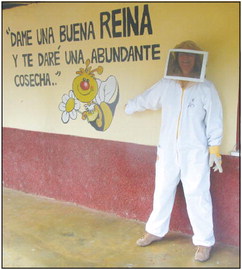Parks gets firsthand look at Cuba’s sweet export


JoAnn Parks took a deep dive into two of her hobbies in an unexpected place. Parks ventured from her residence, south of Cornell, to Cuba, to learn about beekeeping practices of th...


JoAnn Parks took a deep dive into two of her hobbies in an unexpected place. Parks ventured from her residence, south of Cornell, to Cuba, to learn about beekeeping practices of th...